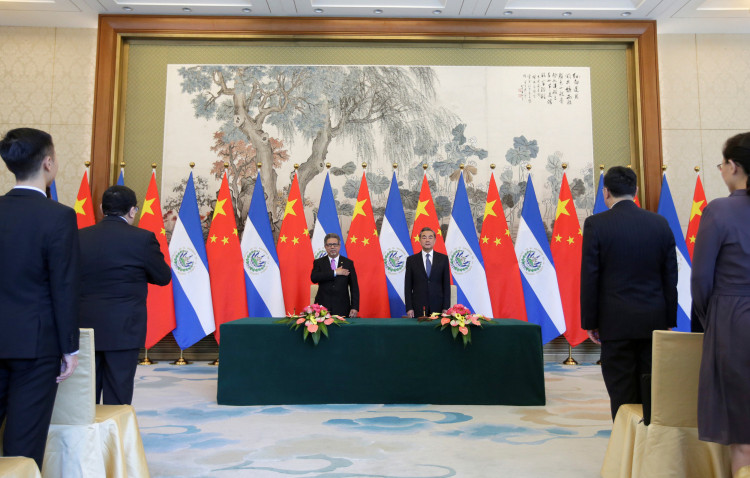China has won a new ally in the form of the Central American Nation of El Salvador. The two countries have recently established diplomatic channels in order to boost cooperation. This new development came after El Salvador dropped support to Taiwan in favor of its new allies in Beijing.
The historic development took place on Aug. 21 after the two countries signed a communique. Chinese State Councilor and Foreign Minister Wang Yi represented Beijing while counterparts in El Salvador was represented by Foreign Minister Carlos Castaneda.
Many analysts have shown a positive response to the new diplomatic ties between China and El Salvador. Proesa President Sigfrido Reyes said that the new ties with China will allow El Salvador to tap China's massive consumer market as well as open up the potential boost to the country's production. Based in El Salvador, Proesa is an export and investment promotion agency that has been studying China's recent economic and political activities in South America.
Proesa said that El Salvador can use its unique geographical location in Central America and establish the country as a hub for cargo arriving not only from China but from the Pacific as a whole. The country can also benefit from China's ongoing international project which aims to help countries build major infrastructures like roads, railroads, shipping ports, and airports.
By improving its diplomatic ties with China, many analysts said that El Salvador can become one of the first few beneficiaries of China's Belt and Road Initiative in South America. With this, El Salvador can turn into a major trading hub not only in South America but in the region as well.
On the political side, El Salvador's decision to cut its ties with Taiwan and form an alliance with Beijing is seen by many political analysts as a shrewd move. El Salvador is the third country to switch its allegiance to China just this year. Political analysts are also positive that this number will grow as China's influence over the international community spreads.
The relationship between China and Taiwan has dropped since Taiwan's President Tsai Ing-wen came into power. Tsai has refused to acknowledge Beijing's One China policy, a decision that has had a negative impact on the country's foreign political standing.
Among the countries that have switched allegiance from Taiwan to China are the Dominican Republic, Burkina Faso, Panama, and Sao Tome. Due to this political changes, Taiwan is now left with 17 countries on its side, many of which are less developed nations located in the Pacific and Central America.





